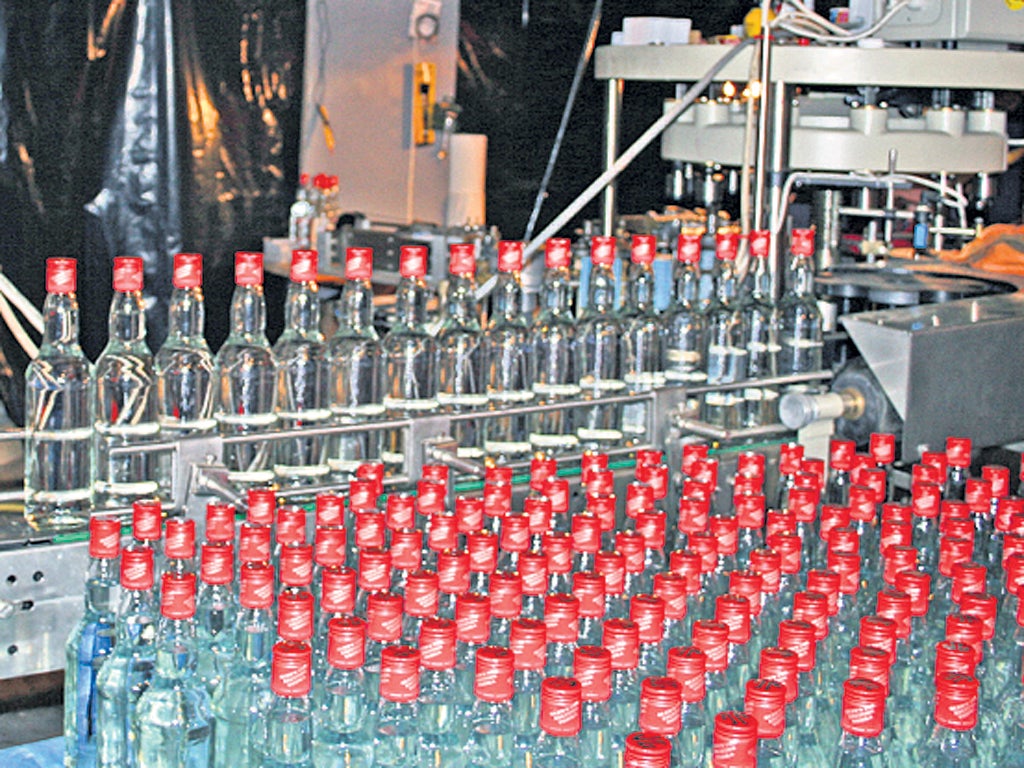Gang used bleach to make illicit vodka
Ringleaders jailed after police raid farm where 165,000 bottles of deadly drink were produced

The mastermind of a gang who used methylated spirits and bleach to manufacture thousands of bottles of fake vodka at a remote farm to sell across Britain has been jailed for seven years.
Kevin Eddishaw, 53, ran an illicit bottling unit at Moscow Farm in Leicestershire before sending the fake-branded Glen's Vodka to independent shops around the country. Spirit made at the plant was seized in Salford, London and South Wales.
Investigators believe that 165,000 bottles of the vodka, which was unfit for human consumption, had been made in 2008 and 2009 and sent around the country before the unit was raided. Officials were not immediately able to say how many of those bottles were sold and whether anybody had been affected as a result.
When enforcement officers raided the unit in September 2009, they found 25,000 litres of methylated spirits, enough to make about 10,000 bottles of vodka. The gang used bleach to remove the purple colouring of the methylated spirit, which contains hundreds of additives. They then diluted it to the required strength.
Officers also found 9,000 bottles of fake vodka, manufacturing equipment and counterfeit packaging at the plant near Great Dalby. The vodka was found to have high levels of methanol, which can lead to vomiting, dizziness, blindness and breathing difficulties, according to the Food Standards Agency.
The loss to the Exchequer was at least £1.5m, said HMRC, which led the operation. The fraud, which was carried out on an "industrial scale", allowed Eddishaw, who drove around in a Range Rover and Mercedes, to buy two homes.
Simon De Kayne, assistant director of criminal investigation for HMRC, said: "This was a substantial production, bottling and distribution plant with the infrastructure to distribute large quantities of counterfeit Glen's Vodka throughout the country.
"The gang were fully aware the counterfeit vodka they manufactured contained highly dangerous chemicals, making it unfit for human consumption, but were interested only in making a profit at the expense of British taxpayers."
Officials said the plant could have exploded if a light had been switched on or a cigarette had been lit because of the alcoholic fumes created during the manufacturing process. The case follows the deaths of five Lithuanian men in Boston, Lincolnshire, in July, in an unrelated explosion at an industrial unit used to produce illegal alcohol.
Eddishaw's chief lieutenant, John Humphreys, 46, was also jailed for seven years. Three other men were convicted, including for making fake labels and boxes and moving the fake vodka around the country.
